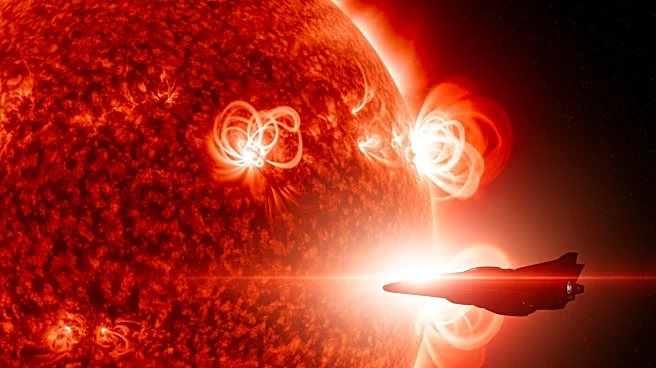What's Happening?
An intense solar storm has caused a delay in the launch of NASA Mars probes by Blue Origin. The geomagnetic storm has sparked northern lights across North America, reaching as far south as Mexico. The storm's
impact has led to the postponement of the launch, which was initially scheduled to take place. The delay is part of a broader pattern of disruptions caused by solar activity, which can affect satellite operations and other space-related activities. The storm has also provided a spectacular display of auroras, visible in regions not typically known for such phenomena.
Why It's Important?
The delay in the Blue Origin launch highlights the vulnerability of space missions to solar activity. Such disruptions can have significant implications for the timing and success of space exploration efforts. The visibility of auroras in unusual locations underscores the power and reach of geomagnetic storms, which can affect communication systems and power grids on Earth. The event serves as a reminder of the need for robust systems to predict and mitigate the effects of solar storms on technological infrastructure.
What's Next?
Blue Origin and NASA will need to reschedule the launch once conditions are deemed safe. This may involve waiting for the solar storm to subside and ensuring that all systems are functioning correctly. The delay could impact the timeline for Mars exploration and research, potentially affecting scientific objectives and international collaboration efforts. Stakeholders will be monitoring solar activity closely to prevent further disruptions.
Beyond the Headlines
The occurrence of such intense solar storms raises questions about the long-term impact of solar activity on space exploration and Earth-based technologies. As reliance on satellites and space missions grows, understanding and predicting solar storms becomes increasingly critical. This event may prompt further research into solar phenomena and the development of more resilient systems to withstand their effects.









